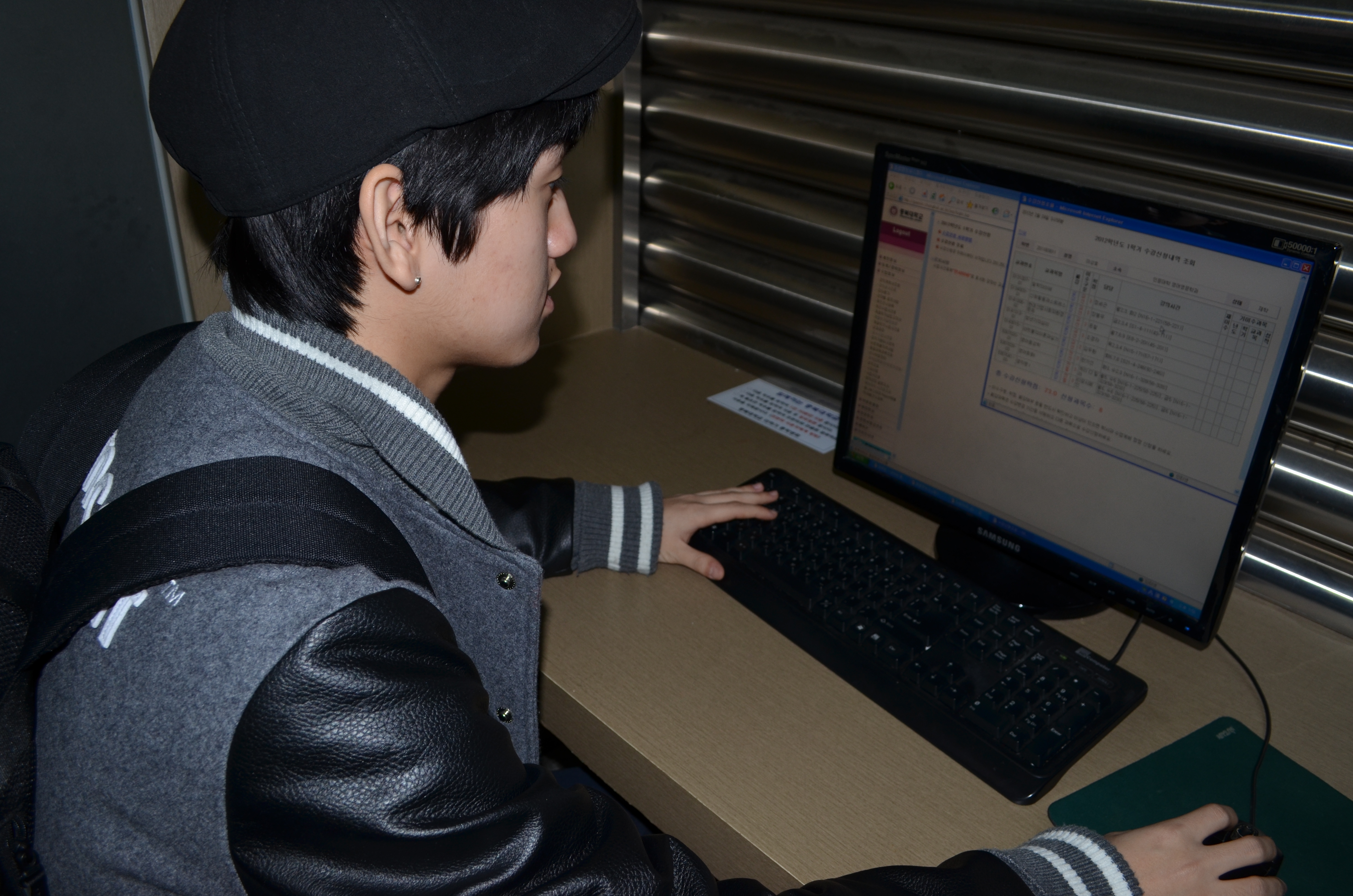
CBNU revised a regulation for retaking courses and introduced new rules: a limitation of taking required subjects and carrying over credits.
A rewritten school regulation about retaking courses says that from now on students can retake courses when students get lower than a C+.(However, retaking courses which the school does not offer anymore can be replaced with taking similar alternative courses.) When retaking courses, previous credits turn invalid and the new grades have to be B+ or lower. In order to improve the atmosphere in the class, CBNU rewrote the regulation about retaking courses while introducing relative evaluations for all subjects. However, students' reactions about this change have been diverse. Lee Daehan(Dept. of Korean Education 09') said, "Students who take courses again comprehend well what they learned because they have learned it before. Therefore, there is no wonder that they have many more chances to attain better grades than the other students. It is not fair." Meanwhile, Ha Daeun(Dept. of English Language and Literature 11') said, "Although students work hard, grades can be low because certain professor's methods to teach or class surroundings do not suit some students' tastes. It is wrong not to give another chance to attain a better grade for these students who unavoidably attained bad grades."
The regulation for limitation of taking required subjects stops students, except seniors, from signing up for other year students' required subjects from the first to the fourth day of registration. On the last day, the 5th day, all students can sign up for all subjects regardless of their year. This was designed to encourage students to take required subjects decided by each year. Registering for courses at CBNU proceeds in order of seniors, freshmen, juniors, sophomores. That's why sophomores, who register last, have failed to sign up for not only cultural subjects they want to take but also their required subjects they should take. It is because elder students sign up for sophomore's required subjects before them. Park Mihwan, the head of the educational affairs section, said, "Because juniors and seniors sign up for sophomore's required subjects in advance of sophomores, it has been controversial that sophomores even failed to sign up for their assigned required subjects for them. However, we couldn't change the way easily because it has been set for so long, and if it changed all of a sudden, juniors and seniors would not able to sign up for required subjects which they couldn't take when they were sophomores as well. This time, we changed it because of constant complaints."
Previously, students at CBNU were able to take a maximum of 21 credits for each semester, but only students whose last GPA was over A0 were able to take 24 credits. However, from now on, students can carry over some credits. If signing up for fewer credits than the maximum possible, students can carry over some credits to the next semester within the limit of 3 and sign up for 24 credits. It is expected to be helpful for students to earn credits to graduate. It is an especially good chance for seniors not to delay their graduation because of falling short of credits.
As mentioned above, regulations for signing up for classes have been prominently changed compared to those of last year. However, lots of students still don't recognize them. We should wait and see how these rewritten regulations will specifically affect students. Students should recognize them all well and keep them in mind when signing up for classes so that they won’t lose out by rules that are supposed to give advantages to students.
by Seo Hwan-hui
hh32@cbnu.ac.kr


 All
All Campus News
Campus News






 서환희
서환희











